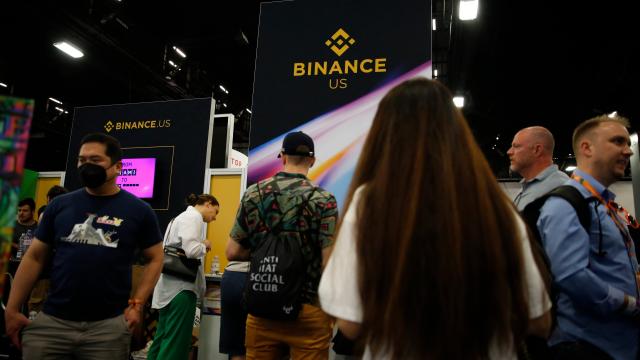More than 2,000 people who invested money in the the so-called “algorithmic stablecoin” TerraUSD (UST), have come together in a class action lawsuit against the crypto-trading platform, Binance, according to a report from CoinDesk.
The lawsuit also targets Binance CEO, Brian Shroder, and was filed Monday in the Northern District Court of California. In it, the plaintiffs claim that Binance violated U.S. securities laws, and that they were misled by the platform’s false advertising. The suit points out ads that Binance was running as recently as April, endorsing UST as “safe.” Another Binance video ad referenced in the suit described UST as “fiat-backed,” when that was never exactly the case.
“Investors who purchased UST on Binance U.S. were wiped out, learning quickly that, contrary to Binance U.S.’s advertisements, UST was not ‘safe,’ ‘stable,’ or ‘fiat-backed,’” reads the lawsuit. “Since the collapse of UST, Binance U.S. has removed its advertisements touting UST as “safe” and “fiat-backed,” effectively conceding that UST was none of those things,” the document continues.
The head lawyer for the firm leading the class action case tweeted out a call for UST and Luna investors to contact Roche Freeman LLP back in May.
If you purchased $LUNA or $UST on either @coinbase @krakenfx @binance or @Gemini, please reach out to TerraRecovery@rochefreedman.com . My firm is coordinating an effort to help those who lost funds from the recent collapse of #terra and #luna.
— Kyle Roche (@KyleWRoche) May 13, 2022
Binance is not registered with the Securities and Exchange Commission, and neither are UST or Luna, However, the lawsuit claims that both are securities. If that definition holds up in court, it would mean that Binance has been illegally trading illegal securities as an illegal, unregistered securities exchange.
However, a previous Federal lawsuit making similar accusations about crypto as a security was dismissed in March. And two U.S. senators introduced a bill last week to define crypto strictly as a commodity, not a security.
The SEC is already investigating Binance in a probe announced last week over the 2017 launch of their namesake Binance Coin. At the time of Binance Coin’s initial offering, the token also wasn’t registered with the SEC. As of writing this, Binance has not responded to Gizmodo’s request for comment.
What Happened to Terra and Luna?
One Terra was theoretically never meant to dip below a $US1 ($1) value, but that supposed stability was supported by an algorithm, not actual reserves of U.S. money. UST was linked with an associated token (or sister coin) called Luna, which was the fourth most popular cryptocurrency only a month ago. When the value of one of the sister coins faltered, trading between the two was supposed to balance things out.
However, that system completely fell apart in May, when Terra became de-pegged from the U.S. dollar and Luna went into a death spiral. As a result, people lost lots of money. On forums, some claimed to have been fully devastated by the coin collapse, losing their entire life savings. One upset investor went so far as to show up at UST/Luna founder, Do Kwon’s, house.
Binance halted trading of UST and Luna on its platform amid the chaos, and on May 12 delisted the currencies. Kwon and the Luna Foundation Guard attempted to salvage the value of the original Terra and Luna, but those efforts didn’t pan out. So, they launched a revised version of the currency, Luna/Terra 2.0, which Binance announced it would list on its platform.
The new lawsuit is rather unique in its focus on a crypto trading platform, following a currency’s collapse, as opposed to targeting the organisation responsible for the specific token. It successful, the suit would have far-reaching impacts in the world of crypto exchange.
